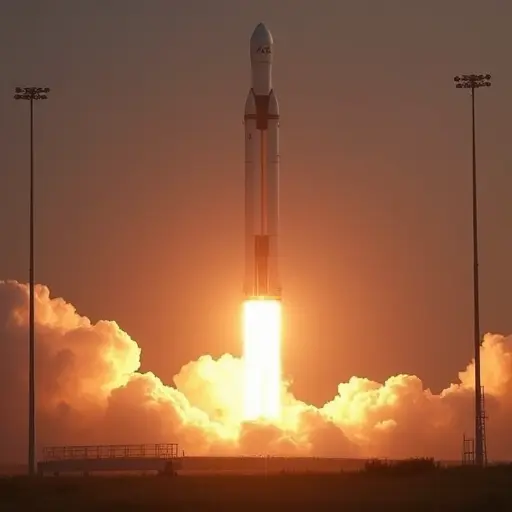
SpaceX Investigates Ground Explosion of Rocket, Possibly Due to Leaking Tank
SpaceX is currently investigating the explosion of the upper stage of its Starship rocket at its Texas launch base. Preliminary data suggests that a leaking nitrogen tank in the upper section of Ship 36 may have caused the blast, which occurred during a pre-test engine check. The incident has raised concerns about the reliability of the Starship design, which is intended to transport humans to Mars.
Details of the Incident
The explosion, captured on video, shows a massive fireball engulfing the rocket. Witnesses reported seeing a gas cloud near the top of the rocket moments before the explosion, indicating a possible tank failure. Elon Musk, CEO of SpaceX, confirmed on social media platform X that the nitrogen tank, designed to withstand high pressure, had failed unexpectedly. This marks the fourth consecutive setback for SpaceX in its Starship testing program.
Impact on Future Missions
The explosion is likely to delay Flight 10, which was scheduled for late June. The Federal Aviation Administration (FAA) had previously approved the test flight for June 29, but this incident may push the timeline back. SpaceX has faced criticism from experts regarding its use of heavy stainless steel for the Starship's exterior, which adds weight and strains the rocket's engines.
Broader Implications
The Starship program is also under scrutiny for its role in NASA's Artemis missions to the moon. A variant of Starship has been selected to land astronauts on the lunar surface, but delays and technical issues raise questions about its readiness. Meanwhile, a consortium led by Blue Origin is developing an alternative lunar lander, adding to the competitive pressure on SpaceX.

 Nederlands
Nederlands
 English
English
 Deutsch
Deutsch
 Français
Français
 Español
Español
 Português
Português